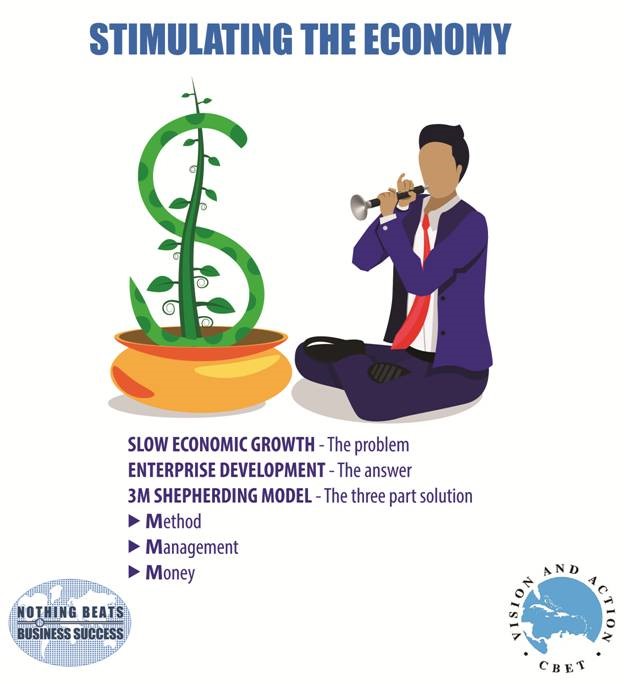“The point is this: whoever sows sparingly will also reap sparingly, and whoever sows bountifully will also reap bountifully.” – 2 Corinthians 9:6
The chronic challenge with which most countries are faced is to find a solution to the problem of slow and unsteady economic growth. The answer is in two parts. To stimulate the economy and thus enhance the general standard of living and quality of life, by creating an environment in which (1) established businesses must grow and prosper and, simultaneously, (2) the development of a family of new successful high performance enterprises is facilitated, one enterprise after another.
Established businesses have the experience, access to finance and can purchase expertise to help them to grow. Potential high performance enterprises, on the other hand, need help.
There was an article in Barbados Today on November 1, 2017 entitled “Small business blues” which is very relevant to discussions on stimulating the economy. The University of the West Indies, the Government, the Small Business Association (SBA) and an entrepreneur weighed in on this topic.
Barbados’ small business owners exist in an unfriendly environment that is stifling growth and impacting national economic activity, says UWI consulting executive director, Lisa Cummins, who called for fresh thinking outside the norm to propel this sector.
Cummins said a negative operating environment for small businesses in Barbados was the latest in a series of struggles for the sector that collectively accounts for the largest share of commercial activity.
She noted: “Our business support organizations and our national trade promotion organizations need to be re-imagined and transformed.”
Recently, Minister of Industry, Commerce and Small Business Development Donville Inniss, told those attending the 2017 SBA Awards Ceremony: “I am always challenged by those who approach Government agencies, lending agencies included, seeking assistance and advice and be treated in the worst possible manner.”
Inniss spoke of bureaucracy that hindered business facilitating agencies. He accused them of seeing business people who needed assistance as “numbers on a piece of paper, part of a balance sheet. Sometimes they don’t appreciate what that individual is going through to fulfill their dreams. There are just too many Barbadians whose dreams are being dashed aside because we are not flexible.”
Meanwhile, Senator John Watson, the first SBA president, said that the Minister’s comments were significant because he is actually saying that they are not friendly. All he has to do is go in there and tell them what to do. He doesn’t have to ask them in a public forum to do that, he commented.
Khalil Bryan, an entrepreneur, has complained that though some government agencies have “fantastic programmes”, the lending policies of these agencies are still in the brick and mortar mode where they are happy assisting those with assets that can be repossessed. “What we’ve experienced is that the group that is actually giving us money . . . was the Barbados Public Workers Credit Union Limited. They said “we want to give people money”. They have shown that they want to give people money. We need to have a portfolio of start-ups, of medium-sized companies, of large companies, then you [will] start seeing investment growth.”
Well, there is a well researched and tested solution to the problem, as articulated by Khalil, which is the “3M Shepherding Model” facilitated by a Shepherding Tool, the ManOBizTM Matrix. It has been tested in collaboration with a large and diverse portfolio of start-ups with potential for global export, in Barbados and Trinidad. Its Shepherding concept has been warmly embraced and its fund management systems have been designed to change the financial lexicon from (loan, interest rate, payback period) to (seed/equity, return on investment, equity buy-back clause). The 3M Shepherding Model should be very attractive for partnership with progressive credit unions. Why re-invent the wheel?

The US (German-born) physicist Albert Einstein (1879-1955) is well known for his definition of insanity: “Doing the same thing over and over again and expecting different results.” The implication here is that we must change.
Let us combine our ideas, our money, our shepherding skills and experience to stimulate growth in our economies and support others in order to enhance our chances of sustainable success.
